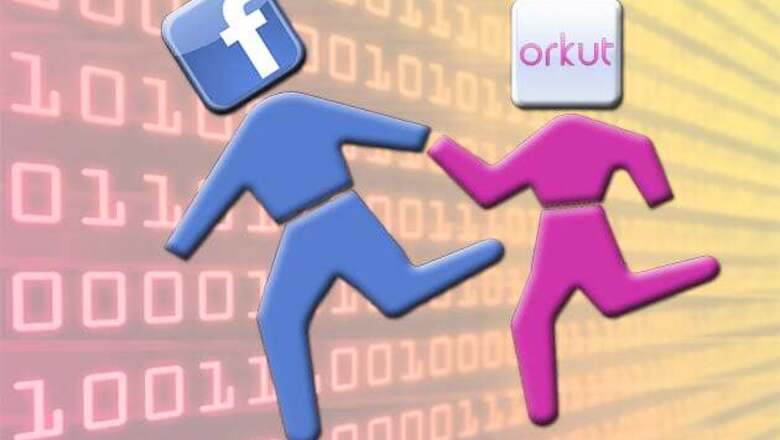
views
Sao Paulo: Facebook's popularity in Brazil has exploded over the past year, and the company may have its biggest competitor to thank for it.
In its recent initial public offering filing, Facebook said its number of active users in Brazil had nearly tripled in 2011, finally placing it ahead of Google Inc's Orkut service as the No. 1 social network in the country.
"I can't think of an example where Facebook has grown so quickly," said Andrew Lipsman, vice president of industry analysis at research firm comScore. "It really just skyrocketed."
In Brazil, the birthplace of co-founder Eduardo Saverin, Facebook found a market primed for growth, with rapidly expanding Internet access, increasing rates of computer ownership, and rabid demand for social media.
Much of the credit for that may belong to Google, analysts say. While a growing economy and easier credit gave Brazilians the ability to purchase computers and broadband connections, Google's Orkut gave them a reason to do so in the first place.
"Until Orkut came along in 2004, Internet use in Brazil was stagnant," said analyst José Calazans of market research firm IBOPEnielsen in São Paulo. "When people here started buying computers and going to Internet cafes, it was specifically to access Orkut. Now many of those people are moving to Facebook."
Orkut offered Brazilians their first taste of social media, with a simple interface and Portuguese language option making it easier to use than competing sites such as Friendster and MySpace. In a highly social culture such as Brazil's, where even business meetings end in hugs, the site became a national phenomenon.
"Everyone was getting on Orkut," recalls Raquel Recuero, a professor who specializes in social media at the Catholic University of Pelotas in Brazil. "You would add people you didn't even know, and people would compete to see who had the most friends."
Orkut's rise coincided with an economic boom that lifted millions out of poverty, with many Brazilians gaining access to computers and the Internet for the first time. That turned into a double-edged sword, both expanding Orkut's user base while alienating more-affluent early adopters.
"After the lower classes started to come on, there was a culture clash that happened within Orkut, which was amplified by the media," said Recuero. "For instance, we would see reports on the news of criminals stalking their victims on Orkut. People started to rethink how they used the site and started becoming aware of concepts like online privacy."
Orkut's failure to innovate in line with users' expectations created an opportunity for Facebook to step in, offering new applications and games, as well as the ability to connect with people beyond Brazil.
Over time, Brazilians came to see Facebook as a way for them to start their online lives over from scratch, helping lead to its widespread adoption.
Is Brazil big enough for both?
Orkut still holds a very large share of the social networking space in Brazil, with more than 34 million users compared with Facebook's 36 million, according to comScore. Yet, its days may be numbered.
"If you think back to the US, Facebook and MySpace were very competitive for a while going back to about 2009," said comScore's Lipsman. "You can co-exist for a while, but what tends to happen is that people tend to consolidate around one or the other."
Facebook will try to maintain its momentum in Brazil, which it called a "key source of growth" in its IPO filing.
According to IBOPEnielsen, more than 85 per cent of active Internet users in Brazil use social networking sites, compared with 74 per cent in the United States and 77 per cent in Japan. Brazilians also spend much more time on those sites, averaging almost eight and a half hours a month, compared with six and a half hours in the United States, and slightly more than four hours in Japan.
That kind of engagement is particularly valuable for Facebook, where each page view or interaction adds to the company's bottom line.
While Facebook's growth in Brazil will continue to hinge on attracting more Orkut users, it could be limited by infrastructure in the country, where less than 30 per cent of households have Internet access.
Brazil's government will play a key role in addressing that. President Dilma Rousseff has made it a goal of her administration to offer Internet access to more than 70 per cent of Brazilian households, through investments in fiber optic networks, community Internet centers, and 4G telephony in World Cup host cities.
"Not even half the population is on the Internet yet, so Facebook has a lot of room to grow," said IBOPEnielsen's Calazans. "But that will also depend on the Internet growing just as fast."


















Comments
0 comment